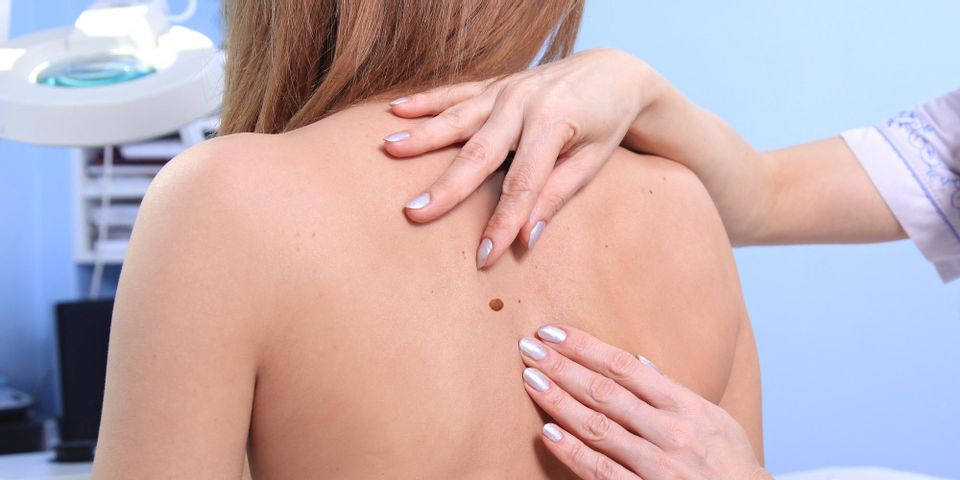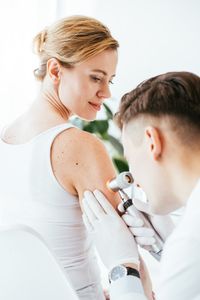
Skin cancer is a common type of cancer, and one in five Americans develop it by age 70. To prevent this disease, use skin care products to protect yourself from the sun’s harmful UV rays. If you develop an abnormal spot or lump on your skin, it’s time to see a professional for a special type of test called a biopsy.
Skin Cancer Biopsy
A biopsy is a procedure that removes a small sample of skin with abnormal lumps or spots on it. While it can be done solely to remove lesions, it’s normally performed for further testing and diagnosing of skin diseases, infections, or cancers.
Types of Biopsies
Shave
 This type of biopsy is the most common because it’s the quickest, simplest, and most cost-effective of the options. Similar to shaving your legs or face, a shave biopsy is performed using a razor to remove the top layer of skin. It works best on raised lesions, like warts or skin tags. After the procedure, your doctor will apply an aluminum hydroxide solution and bandage to sterilize and protect the wound as you heal.
This type of biopsy is the most common because it’s the quickest, simplest, and most cost-effective of the options. Similar to shaving your legs or face, a shave biopsy is performed using a razor to remove the top layer of skin. It works best on raised lesions, like warts or skin tags. After the procedure, your doctor will apply an aluminum hydroxide solution and bandage to sterilize and protect the wound as you heal.
Punch
During this procedure, a circular tool similar to a cookie cutter is used to remove a deeper layer of skin tissue, including the epidermis, dermis, and superficial fat. It’s used for skin cancer tests that require larger or deeper sample sizes. Once the procedure is finished, your incision will be sterilized and closed with a simple suture.
Excisional
This is the deepest and largest of skin cancer biopsies as it’s designed to remove an entire lump or skin section with a scalpel or surgical knife. If a doctor is concerned you may have melanoma, this is the procedure they’ll suggest. Once the sample is removed, the area will be stitched, and you’ll be given a medical dressing to place over the site to protect it from bleeding or infections.
If you’ve recently noticed an unusual lump or spot on your skin, consult the experienced team at Rustad Dermatology in Lincoln, NE. Dr. Rustad has over 40 years of experience in diagnosing and treating skin conditions, including melanoma, psoriasis, and skin cancer. Call (402) 484-6222 to schedule a consultation, or visit the website for more information on their skin biopsy services.
About the Business
Have a question? Ask the experts!
Send your question

